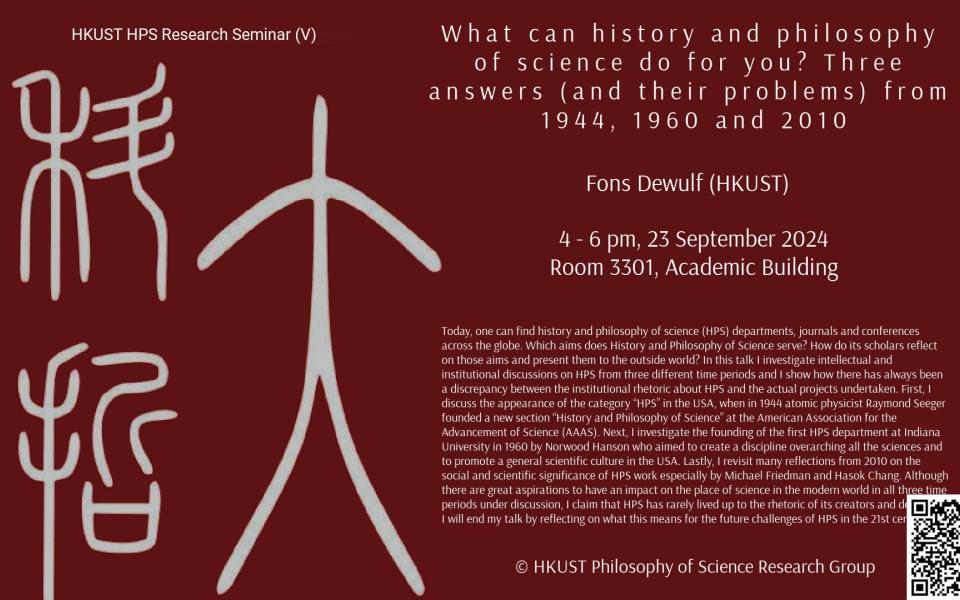History and Philosophy of Science Research Seminar - What can history and philosophy of science do for you? Three answers (and their problems) from 1944, 1960 and 2010
Supporting the below United Nations Sustainable Development Goals:支持以下聯合國可持續發展目標:支持以下联合国可持续发展目标:
Today, one can find history and philosophy of science (HPS) departments, journals and conferences across the globe. Which aims does History and Philosophy of Science serve? How do its scholars reflect on those aims and present them to the outside world? In this talk I investigate intellectual and institutional discussions on HPS from three different time periods and I show how there has always been a discrepancy between the institutional rhetoric about HPS and the actual projects undertaken. First, I discuss the appearance of the category “HPS” in the USA, when in 1944 atomic physicist Raymond Seeger founded a new section “History and Philosophy of Science” at the American Association for the Advancement of Science (AAAS). As participant to the Manhattan project, Seeger wanted HPS to aid scientists in their reflection on the meaning and place of their work in human history. I show that in the initial years after Hiroshima, this attempt was successful, but lost momentum from 1950 onward. Next, I investigate the founding of the first HPS department at Indiana University in 1960 by Norwood Hanson who aimed to create a discipline overarching all the sciences and to promote a general scientific culture in the USA. Lastly, I revisit many reflections from 2010 on the social and scientific significance of HPS work especially by Michael Friedman and Hasok Chang. Although there are great aspirations to have an impact on the place of science in the modern world in all three time periods under discussion, I claim that HPS has rarely lived up to the rhetoric of its creators and defenders. I will end my talk by reflecting on what this means for the future challenges of HPS in the 21st century.
For more information, please click here.
Please contact Qinyi Wang for registration (qwangdi@connect.ust.hk).
